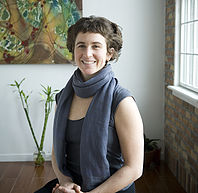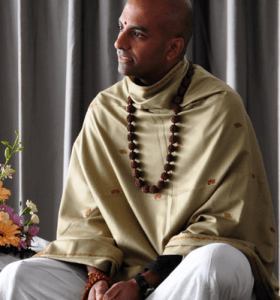Do You Know How to Relax? Why You Should Make Time to Do Nothing
As overworked women (with student loans to pay off and corporate ladders to climb), we tend to take a type-A approach even when it comes to relaxation.
We jam massage and acupuncture appointments in between meetings. We dash to yoga class. Even a meditation practice can become a task that requires energy and focus.
Guess what? For health, happiness, and basic sanity, we need time to completely chill, unplug, and do absolutely nothing, say experts. A great day to start: Leap Day, which is basically a 24-hour bonus we get every four years.
We asked six experts why it's so important to just stare out a window, and for tips on how to make it happen.
Gabrielle Bernstein
Self-help phenom, motivational speaker, and New York Times best-selling author of books like Miracles Now and Spirit Junkie

Chillaxing is a spiritual practice. When you sit in stillness and do nothing—not even meditate—your mind has an opportunity to recalibrate. Doing nothing allows your thoughts to pass through you naturally and clears space for you to reconnect to your ~ing (inner guide).
The time I spent on vacation doing NOTHING really helped me reconnect to my ~ing and let the Universe do her thing. Step back, slow down and just BE.

{{post.sponsorText}}
Serra Chase
Founder, Brooklyn Acupuncture Project

In classical Chinese medicine, stillness or doing nothing is considered to be very wise. In fact, for thousands of years, the words "wu wei" hung above the throne of the emperor himself. As all characters in Chinese, "wu wei" is filled with much more meaning than can be translated exactly into English words, but the gist of it is: "Do nothing."
This non-action leaves the space for thorough observation, non-reactive decision making, and the calm and collected approach we want in our leaders. Whether it be the leader of an empire, a country, an organization, a family, or our own inner empire, a pause in stillness is necessary for powerful movement forward.
Michelle Brock
New York City-based spiritual life coach

In my experience as a life coach, I have discovered that the majority of people who keep themselves constantly busy and hyper-scheduled do so to avoid having to deal with their own thoughts and feelings. By spending time just doing nothing, and allowing our thoughts and feelings, we can eventually get to know who it is that we really are on the inside.
When you get to know yourself on this soul level, your whole perspective shifts. You can know that life is filled with deep meaning and profound purpose. People who know their own soul are at peace from within.
Laurie Gerber
Life coach, president of Handel Group Life Coaching

I designate at least four hours a week to do nothing. My rule is that I cannot produce any measurable result during that time or tick off any other commitments or promises. This basically leaves...napping, staring out the window, reading for pleasure, playing games, journaling, making art.... It has to be restorative.
We absolutely must take this time for our well-being—all doctors, philosophers, religions and spiritual leaders agree on this fact. The thing is, people mostly "steal" or sneak this time rather than designing it, planning it, and setting it aside.
I recommend owning up to the fact that you need and desire time off every day and designing it in advance. You won't know how good (and mature) that feels until you've tried it.
Dandapani
Hindu priest and meditation teacher

Sitting down and doing nothing for a little while each day is one of the greatest gifts you can give yourself. It’s the first step towards taking control of your mind, body, and emotions. You have to make it a priority in your life.
When people ask me for a meditation practice they can do, I often recommend they start with five minutes where they sit down and do nothing.
And the best time to do it is first thing in the morning before life starts to take hold of you.
Jeff Cannon
Founder of The Simple Truth Project and a meditation teacher who teachers New Yorkers how to relax.
Don't know where to begin? Cannon offers this exercise to ease you into "do nothing" mode.

When you make your tea or coffee in the morning step back from your actions. Take a nice, slow breath and smile as you spoon your tea or coffee into your pot.
Inhale as you smell your morning and give yourself permission to settle into your breath and your day. Exhale into the room around you. Breathe in as you fill your pot with hot water and smile. Breathe out as you grow aware of your own anticipation.
Before you taste what you have, inhale the aroma and pause as you taste what is before you. Smile as you sip and enjoy your day.
Another way to let go of the desire to do things: spending time in a sensory-deprivation flotation tank. Here's what happened when we tried it.
This post was originally published on November 24, 2011, and updated on February 28, 2016.
Loading More Posts...